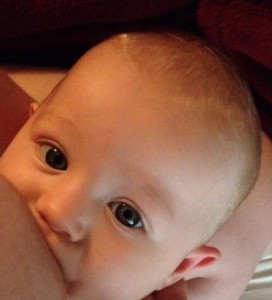 Lately there seems to be a lot of confusion about just who is qualified to dispense breastfeeding advice. Historically, the term “lactation consultant”refers to a health care professional who has met the qualifications for, and passed the exam given by, the International Board of Lactation Consultant Examiners. Passing the exam permits her to use the letters IBCLC after her name. Unfortunately the term “lactation consultant” is not trademarked so there are no regulations about who uses that term. If you’re seeking help for breastfeeding be sure that your consultant has received extensive training, including at least 500 supervised clinical hours specific to lactation.
Lately there seems to be a lot of confusion about just who is qualified to dispense breastfeeding advice. Historically, the term “lactation consultant”refers to a health care professional who has met the qualifications for, and passed the exam given by, the International Board of Lactation Consultant Examiners. Passing the exam permits her to use the letters IBCLC after her name. Unfortunately the term “lactation consultant” is not trademarked so there are no regulations about who uses that term. If you’re seeking help for breastfeeding be sure that your consultant has received extensive training, including at least 500 supervised clinical hours specific to lactation.
In the last 10 years or so some organizations have begun offering certifications for programs that involve a mere week or so of didactic instruction. The coursework is valuable, but does not provide the depth and breadth of training required to become IBCLC. On the other hand, other healthcare professionals, such as MD’s, have 1000’s of hours of clinical training and experience, but usually very little in the area of lactation.
Here is a partial list of professionals and others who sometimes get confused with lactation consultants. This list pertains to the US only. Other countries have different certifications. Continue reading



 This young mother called me at the urging of a friend who already knew and trusted me. Breastfeeding was very important to Marissa, but she didn’t know how she could go on with so much pain. Normally, I would have seen this mom and baby in person. She lives in another city, however, and she felt most comfortable working with me. I gave her guidance over the phone several times over the course of a few weeks. Since her baby was gaining weight and she had a great milk supply, she just needed some minor adjustments to make breastfeeding comfortable.
This young mother called me at the urging of a friend who already knew and trusted me. Breastfeeding was very important to Marissa, but she didn’t know how she could go on with so much pain. Normally, I would have seen this mom and baby in person. She lives in another city, however, and she felt most comfortable working with me. I gave her guidance over the phone several times over the course of a few weeks. Since her baby was gaining weight and she had a great milk supply, she just needed some minor adjustments to make breastfeeding comfortable.